Is cheese vegan? The simple answer is no. Cheese, as I’m sure you are aware, is a dairy product. That means that it is made from animal milk, typically the milk of cows, but sometimes that of goats, yaks, buffalo, or sheep. The milk taken from those animals is curdled, processed, and aged to produce the enormous array of cheeses available in the modern world.
None of these traditionally produced cheeses, whether cheddar, feta, mozzarella, cream cheese, parmesan, cottage cheese, or whatever, is vegan. Because they all come from animals. And, as you will no doubt know, the Vegan Society’s definition of a vegan is someone who follows “a philosophy and way of living which seeks to exclude—as far as is possible and practicable—all forms of exploitation of, and cruelty to, animals for food, clothing or any other purpose.”
> Read more: What is vegan cheese?
In some cases, traditional cheeses are not even vegetarian because cheesemakers sometimes use rennet in the production process. Rennet can come from various sources, but it is often derived from the stomachs of young calves killed to make veal.
Things are not always simple in the world of veganism. In the modern world, an enormous variety of vegan cheeses are now on the market, catering to the tastes of people looking for plant-based alternatives to the enormously popular food. In this article, we take a deep dive into the wonderful world of dairy-free cheese.
Is there a plant-based cheese?
Yes, there are plant-based cheeses! These are made from a variety of non-dairy proteins, such as soy, nuts, seeds, and root vegetables. Plant-based cheeses are a great option for vegans and offer a delicious and nutritious alternative to dairy cheese.
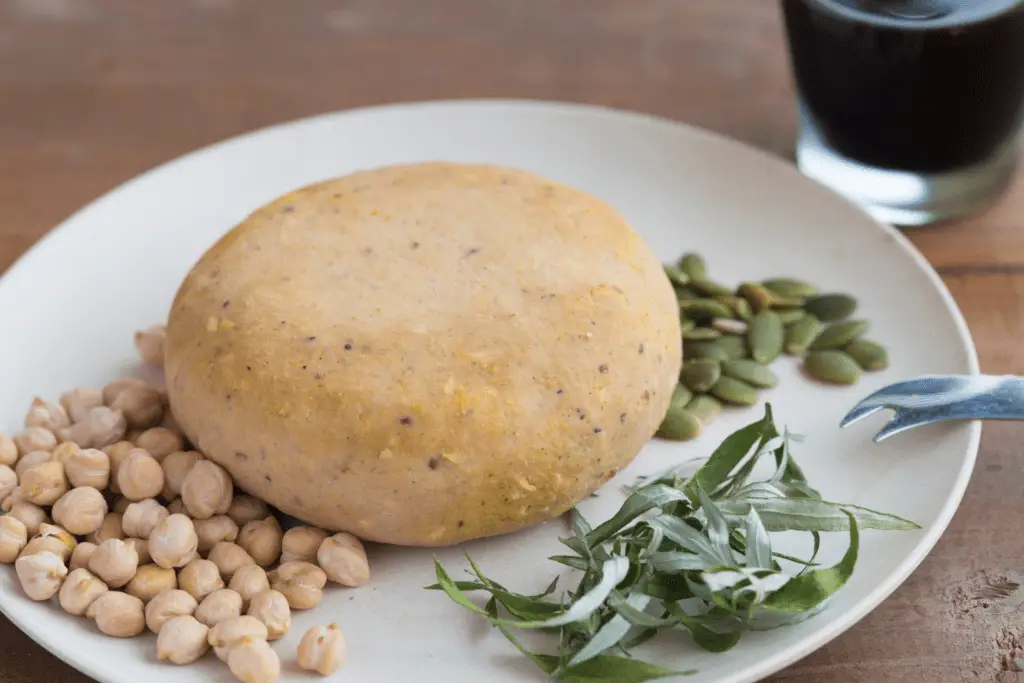
Is there a cheese substitute for vegans?
Yes, vegan cheese is a thing! There are many types and styles, made from a variety of ingredients. You can find vegan cheese that tastes and feels just like the real thing – with none of the dairy. So, if you’re looking for a cheese substitute for vegans, you’ve got plenty of options to choose from.
Cheese is very popular in most parts of the world. It’s been estimated that the average American consumes over 17 kg of cheese each year. One of the reasons for cheese’s popularity is its complexity, which allows it to come in such an enormous variety of tastes, textures, scents, and styles.
That very complexity was the thing that made creating tasty dairy-free cheeses so difficult. When the first commercially produced vegan cheeses were launched in the 1980s, they were catering to a very niche market and were widely considered a pale imitation of “real cheese.”
That should come as no surprise, after all the history of cheesemaking goes back into pre-historical times. It’s been estimated that people have been making cheese for around 10,000 years. How could a new product directly compete with all that accumulated expertise?
Well, thankfully, vegan cheeses have made huge strides in the last decade or so. And there is now an enormous array of dairy-free options for people following plant-based and cruelty-free diets. By 2019, the vegan cheese market was valued at over $1 billion, with forecast growth of 13% over the next seven years. And the quality of vegan cheese is increasing all the time.
The massive growth of the vegan cheese market in recent years has led to a lot of pushback from the dairy industry. One battleground has been over the right to use the word cheese. In Europe, the EU has made it law that the word “cheese” can only be applied to products that are made from animal milk. Therefore, in Europe, alternative wording has to be found to describe the dairy-free cheese alternatives that are gaining ever more popularity with ethical and health-conscious consumers.
In this article, however, we’re still quite happy to use the term “vegan cheese” to describe dairy-free cheese alternatives. Below, we look at the process and ingredients used to produce dairy-free cheese and highlight the wide variety of choices available on the market today.
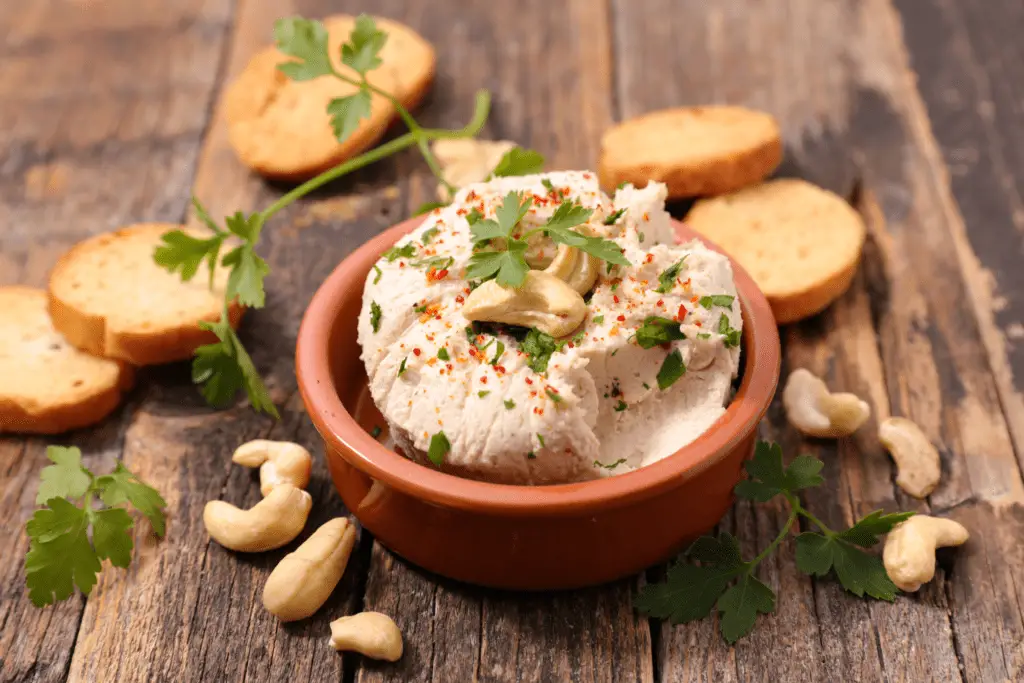
How is vegan cheese made?
Vegan cheese is made from a variety of plant-based ingredients that are combined to create a dairy-free product. Common ingredients include soy, nuts, vegetable oils, starchy flours, root vegetables, and aquafaba. These are mixed with other ingredients to bind them together to replicate the consistencies of different types of cheese.
Let’s start by taking a look at some of the ingredients that are used to make vegan cheese. Like most early vegan products, the first attempts at making vegan cheese used soybeans. However, modern vegan cheeses incorporate an exceptionally wide array of ingredients taken from plants.
Modern vegan cheese-makers combine various proteins, gums, solids, and fats to create products that taste, feel, and even melt like dairy cheese. Unlike lots of the dairy cheeses available on the market, vegan options are normally not aged or cultured. Instead, the cheese-makers add in acidic ingredients, like lemon juice, to try to capture that cheesy taste. Fermentation is also used to reproduce the taste and texture of traditional cheese.
Ingredients commonly used for vegan cheeses include seeds, like sunflower and sesame, and nuts like cashew, almond, pine nut, pecan, and macadamia. Making vegan cheeses from such ingredients is actually relatively simple. In their most basic forms, all they require is that the ingredients be soaked, blended, and fermented with the same bacteria used for traditional cheese. Some people add different herbs, spices, or nutritional yeast for flavor.
Coconut cream, milk, and oil are increasingly being used to make creamy vegan cheeses thanks to their high levels of fat. Extra ingredients like potato starch, tapioca, or agar-agar are often added to such cheeses to make them similar in texture to dairy cheese. Flavoring like garlic or onion powder, nutritional yeast, and lemon are also used to disguise the coconut’s own flavor and give it more of a cheesy taste.
Other ingredients used to make vegan cheeses include starchy flours such as tapioca, root vegetables like potato, and aquafaba – which is the liquid that you get inside a tin of chickpeas and normally just throw out straight away. Such ingredients are mixed with others to bind them together and try to replicate the consistencies of different types of cheese. The particular advantage of aquafaba is that it creates a dairy-free cheese that melts like regular cheese.
What Are Common Vegan Cheeses?
Nowadays, there are vegan versions of lots of the most popular regular cheese types. For example, options include:
- Vegan block cheese – in varieties like cheddar, pepper jack, gouda, and provolone, such cheese also comes in ready-sliced versions
- Vegan soft cheese – emulating the texture and taste of famous dairy cheese styles like Camembert and brie
- Vegan cream cheese – comes in various flavors and is perfect for spreading on toast or bagels
- Vegan nacho-cheese – for cheesy sauces and dips
- Vegan shredded cheese – in styles like cheddar and mozzarella
- Vegan parmesan – the ideal addition to delicious vegan pasta or pizzas
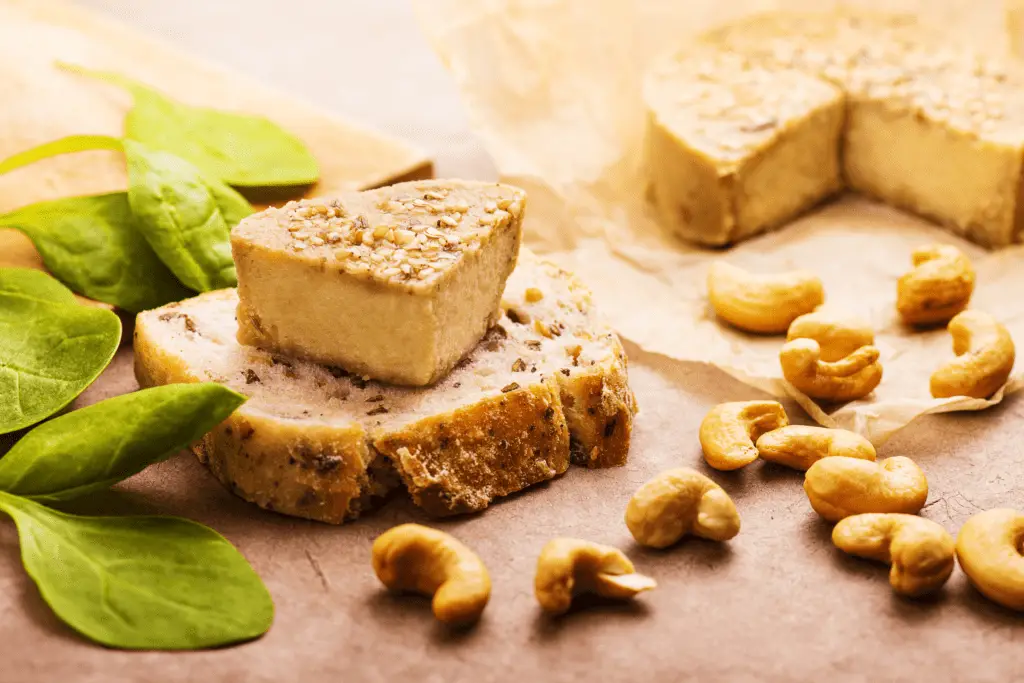
Is there anything vegans need to watch out for with alternative cheeses?
Perhaps surprisingly, some cheeses made primarily from soy contain casein, which is a protein from milk. The idea of these cheeses is that they are created for people who are lactose-intolerant rather than for people who are trying to avoid all animal products for ethical or health reasons. So, even if a cheese is made from soy, you may need to check to make sure that it does not contain casein. If it is labeled as vegan, however, you can rest assured that there will be no casein in it.
Is vegan cheese healthy?
Yes, vegan cheese can be healthy. Some vegan cheese options are made mainly from whole foods and are free from unhealthy ingredients like refined oils, food colors, and preservatives. However, some vegan cheeses are very heavily processed and may not be as healthy as others.
Health-conscious vegans will want to be careful when selecting a vegan cheese alternative. It’s important to read labels carefully to make sure you are choosing a healthy vegan cheese option. It’s also worth remembering that just because something is vegan doesn’t mean that it’s healthy.
Is cheese vegan? Summary
So, what does it all mean? Cheese, as traditionally made, is a dairy product, meaning it comes from animal milk and is not suitable for vegans. Some of that dairy cheese is not even suitable for vegetarians because of the rennet it uses which comes from animal stomachs, typically from young calves being killed for veal.
However, in the last decade or so, a massive variety of vegan cheeses have come onto the market. These use a big range of ingredients to recreate the tastes and textures of various regular cheeses. The complexity of the vegan cheese market is ever-growing, and there is no reason you shouldn’t be able to find a tasty vegan version of your favorite cheese. It’s recommended, however, that you find those vegan cheeses that combine great taste with nutritional value. Or, better still, check out some recipes online and start making your own delicious and nutritious vegan cheeses!




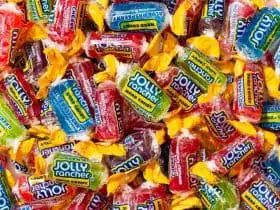
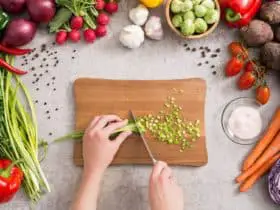
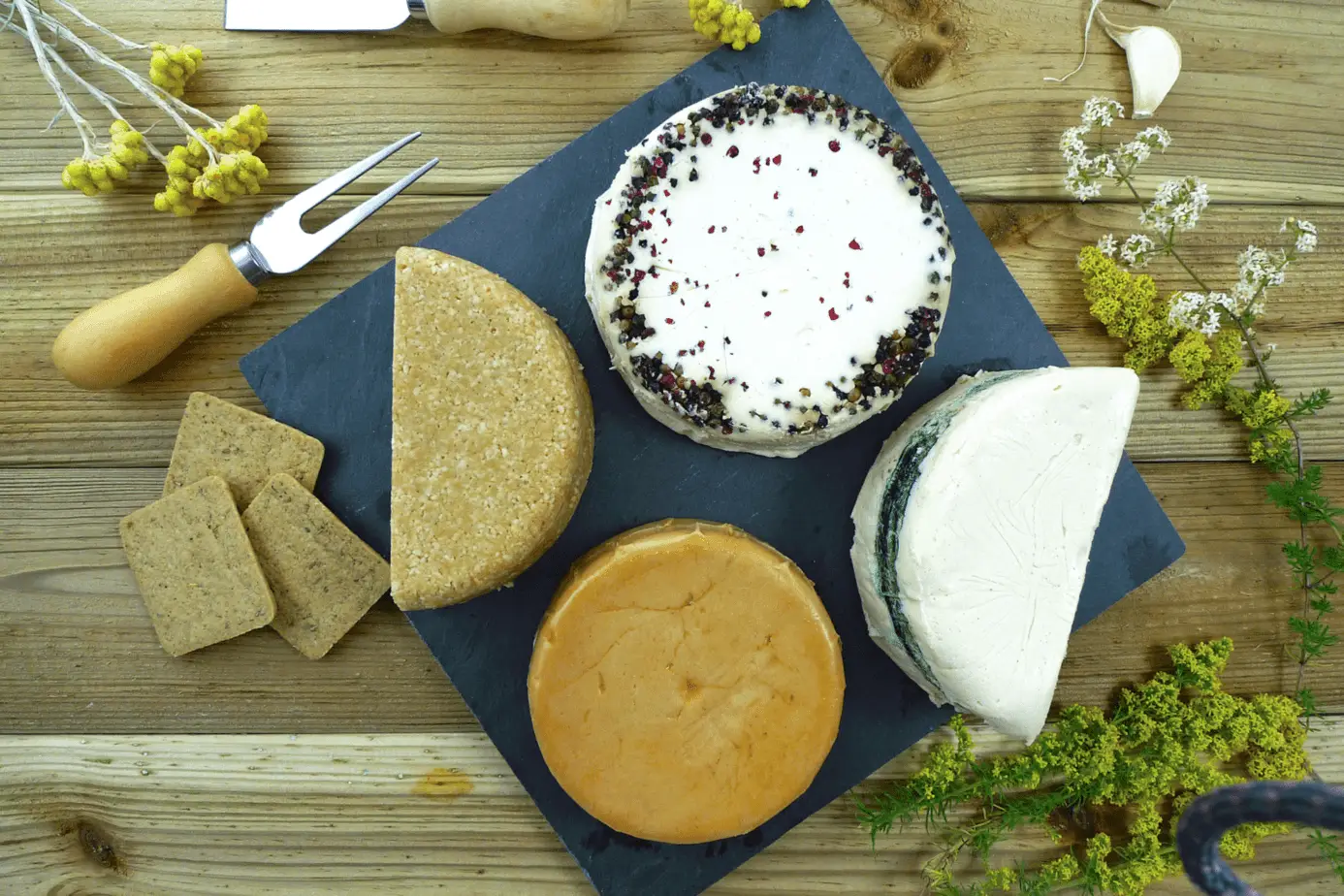

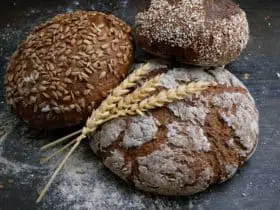


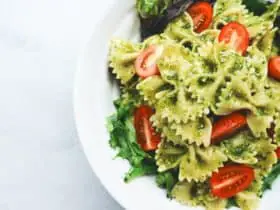
Leave a Reply